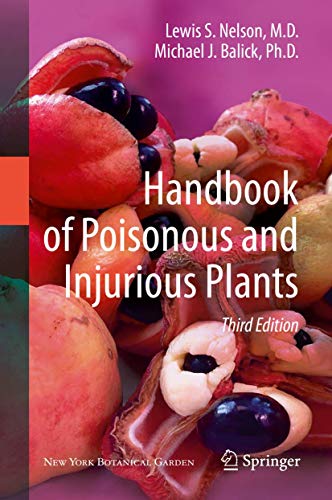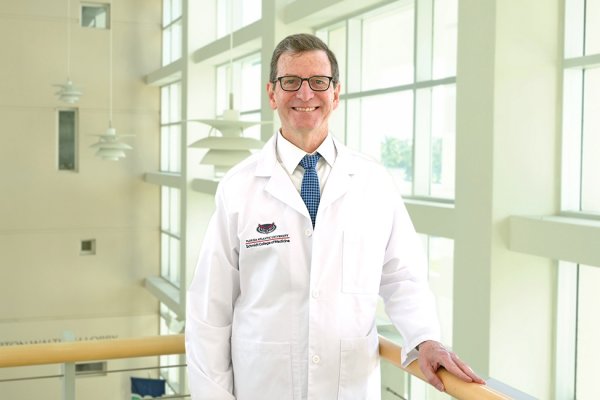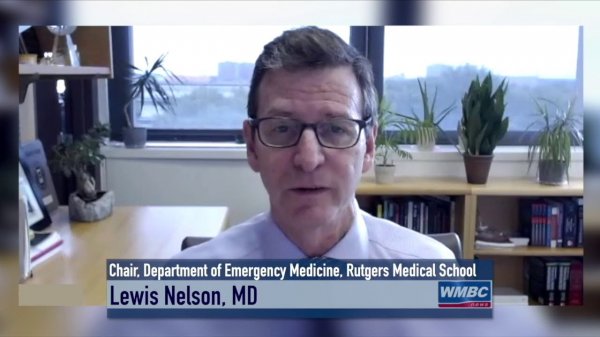Lewis Nelson, M.D.
Dean and Chief of Health Affairs | Professor of Emergency Medicine / Medical Toxicology Florida Atlantic University
- Boca Raton FL
Lewis Nelson's research interests span emergency medicine, medical toxicology, and addiction medicine.
Social
Biography
Prior to joining FAU in 2025, Dr. Nelson served as professor and founding chair of Emergency Medicine at Rutgers New Jersey Medical School, where he also held the position of chief of service for the Emergency Department at University Hospital of Newark. His leadership drove remarkable growth: expanding the residency program, doubling the faculty size, establishing five fellowship programs, and increasing clinical revenue while maintaining a strong focus on educational excellence and research productivity. He also served as chief of the Division of Medical Toxicology and Addiction Medicine, developing innovative approaches to the clinical management of poisoning and overdose and addressing complex substance use challenges.
Dr. Nelson has served as president of the Association of Academic Chairs in Emergency Medicine, held positions on the board of directors for the American Board of Emergency Medicine; the Society for Academic Emergency Medicine; and the Accreditation Council for Continuing Medical Education; and led the American College of Medical Toxicology as president. His work with numerous professional organizations and governmental agencies has shaped medical education, health policy, and clinical practice nationally.
Looking forward, Dr. Nelson's vision for the Schmidt College of Medicine focuses on three key areas: expanding research capabilities, advancing clinical excellence through strategic partnerships, and fostering innovation in medical education. This vision, coupled with his commitment to collaborative leadership and community engagement, aligns with FAU's improve health outcomes in South Florida and beyond.
A distinguished scholar, Dr. Nelson has authored over 300 peer-reviewed publications and serves as lead editor of Goldfrank's Toxicologic Emergencies, the definitive text in medical toxicology. His research interests span emergency medicine, medical toxicology, and addiction medicine, with particular focus on opioid use and alcohol withdrawal, patient safety, and public health and health policy challenges.
Areas of Expertise
Accomplishments
Outstanding Service Award, American College of Medical Toxicology
2015
Rutgers New Jersey Medical School Faculty Organization, Faculty of the Year
2018
Matthew J. Ellenhorn Career Achievement Award, American College of Medical Toxicology
2018
Outstanding Contribution in Research Award, American College of Emergency Physicians
2023
Education
Brandeis University
M.B.A.
State University of New York
M.D.
Emory University
B.S.
Affiliations
- American College of Emergency Physicians
- American College of Medical Toxicology
- American Academy of Clinical Toxicology
- American Society of Addiction Medicine
Selected Media Appearances
Kambo: The ‘Wellness’ Trend That Makes You Vomit
Medscape online
2025-09-10
Hi, and welcome. I’m Dr Robert Glatter, medical advisor for Medscape Emergency Medicine. Today, I’ll be speaking with Dr Lewis Nelson, an emergency physician, toxicologist, and dean at the Charles E. Schmidt College of Medicine at Florida Atlantic University, about the adverse effects associated with use of a compound known as kambo. This has recently been gaining popularity as a detox or cleanse among influencers on social media.
South Florida childhood vaccination rates plunge. Who is vulnerable, and why?
Sun Sentinel online
2025-08-18
Each person’s risk for diseases such as measles varies, said Dr. Lewis Nelson, dean of Florida Atlantic University’s Schmidt College of Medicine.
Plasticizer Spread Rapidly Through Illicit Drug Supply
Medscape online
2025-07-08
Lewis Nelson, MD, dean of health affairs at Florida Atlantic University in Boca Raton, Florida, and a specialist in emergency medicine and medical toxicology who wasn't involved with the paper, told MedPage Today that BTMPS has been on his radar for about a year and agreed that it appears to be a bulking agent.
Florida doctor charged after allegedly stealing fentanyl from ICU patient
CBS 12 tv
2025-06-25
We asked Dr. Lewis Nelson, Dean of the Charles E. Schmidt College of Medicine at Florida Atlantic University in Boca Raton for his reaction to the arrest.
"This is an all too common problem that we see in health care. It's not unique to this individual or this institution. The fentanyl itself is usually locked up and there's no access to that easily and the patients can't adjust the dosing," Dr. Nelson said.
Brad Pitt’s candid discussion of his sobriety journey and involvement in Alcoholics Anonymous
Good Morning America tv
2025-06-24
The actor gets candid about his sobriety journey and his experience with Alcoholics Anonymous, calling it "just incredible."
Selected Articles
Factors Associated with Benzodiazepine Misuse Among Those Who Misused Opioids Within the Past Year: A US National Analysis
Substance Use & Misuse2025
Rarely lethal in isolated ingestion, benzodiazepines show an increasing degree of morbidity and mortality associated with overdose when co-ingested with opioids. Several studies have identified a limited number of associated risk and protective factors surrounding concomitant use. Of those studies that used national data, most focused on the consequences of benzodiazepine and opioid co-ingestion rather than risk factors associated with their misuse. Consequently, we aim to elucidate risk factors associated with benzodiazepine and opioid misuse using national data.
Rapid Transition From a Continuous Naloxone Infusion to Sublingual Buprenorphine After an Opioid Overdose: A Case Series
Substance Use & Addiction Journal2025
With increasing frequency, providers are encountering patients with opioid overdose who recrudesce after intermittent bolus dosing of naloxone. Some patients require a continuous infusion to maintain ventilation, which necessitates admission to a monitored setting. Buprenorphine could shorten the duration of a continuous naloxone infusion (CNI) or preclude the need altogether because its long-lasting partial agonist effects compete with and blunt the respiratory depressant effects of full agonist opioids. This case series describes the replacement by sublingual (SL) buprenorphine of a CNI in patients experiencing prolonged and recurrent respiratory depression from an opioid overdose.
Opioid utilization patterns and predictors for emergency department visits related to ankle sprains between 2016 and 2021: A National Analysis Utilizing Neural Networks
The American Journal of Emergency Medicine2025
Factors associated with corrective actions, remediation, and employment termination of emergency physicians
The American Journal of Emergency Medicine2025
Objective
Medical professionalism is fundamental to the delivery of high-quality patient care. There is a paucity of data to describe behaviors associated with negative professional and employment outcomes. This study examines common factors leading to corrective actions, remediation, and termination of emergency physicians (EPs).
ACMT and AACT Position Statement: Preventing Occupational Opioid Exposure to Emergency Responders
Journal of Medical Toxicology2025
The US has been experiencing an unprecedented opioid crisis since the mid-1990s. The age-adjusted rate of synthetic opioid-involved deaths (excluding methadone) increased 22-fold from 2013 to 2022.








